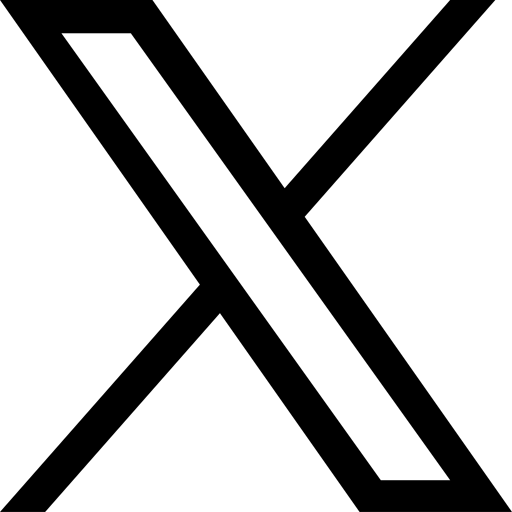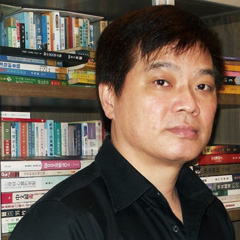16/12/2014
政治成為關係殺手?
佔領中環這場未能預計的悲劇破壞了很多珍貴的關係,影響至情侶、父子、夫妻、同事及朋友之間。請不要再讓此情況發生!
首先,思想與言論自由是基本的人權。不是每個人需要認同你,請尊重這個事實。與自己持不同意見者不一定是敵人。如果你想繼續對話,就要圍繞主題作討論,並不要加入太多個人情緒。如果你不能同意別人之相反意見,可先暫停討論,試試轉移話題。
爭論往往由堅信自己的想法,否定對方的觀點開始,而且有九成機會,你的信念源自道聽途說。曾否想過你所聽的、所見的並非真實或不準確?如果你的資料來源有可疑之處,你的判決或建基於錯誤的假設上。Anup Shah 在《Global Issues》曾寫道:「每次的紛爭都至少會在兩個層面燃起:戰場及人們藉著輿論表現的想法。」「好人」與「壞人」均有機會犯錯,為了贏取支持與持平之感,會以扭曲,誇大,主觀,不準確,甚至以胡編亂造的事來誤導別人。
希特拉是「彌天大謊」(Big Lie)的創始人。在他的著作《我的奮鬥》(Mein Kampf)中,他談到他所用的技巧,以異常荒謬的大話騙人,失真之大令人難以相信是謊言,再膽大包天地不斷重覆,謊言也成「真」!著實令人可怕。《The Guardian》的Nick Davies 曾公開承認「我們的傳媒就是大量生產歪理的人。一個原本是把虛假過濾掉的行業已變成發布宣傳及二手資訊的渠道……」
新聞媒體從來都不是完美的。新聞從業員在時間或準確度上會有不足,但現今的趨勢顯示無知的情況愈滾愈大。卡迪夫大學(Cardiff University)從《Times》、《Telegraph》、《Guardian》、《 Independent》及《the Daily Mail》這五份具公信力的報紙中抽取二千篇英國的新聞報導,以此進行調查,發布的結果相當驚人:(一)只有12%的報導是經過記者調查的,他們不確定的報導佔8%。餘下的八成報導全部或部分是他們聽說的,又或取自新聞機構、公關公司或未經證實的「來源」。(二)只有12%報導經過查證,而英國是全球其中一個擁有最高質素的新聞媒體的地方,質素較香港高……
這個結果令人震驚。新聞從業員曾經是搜集新聞的人,現在他們卻使用未經查證、二手的資料,這些資料大部分是由公關公司提供,有政治或商業上的考慮。這不是報新聞,而是抄新聞。一個本以揭穿謊言為己任的行業已處於弱勢,成為棋子,染指謊言與宣傳的大規模生產。卡迪夫大學的調查人員認為問題的成因在於時間上的限制。相較1985年,一個記者要負責的報導是過往的三倍,粗略計算,他們只有三分之一的時間來完成工作。再加上競爭上的壓力、銷量及盈利這些因素,便解釋了為何資訊變得不再可靠。
假如紙媒的情況如此,試想像網上的世界又如何?網上的資訊更快,競爭激烈,更大肆渲染,情況更差。
事實擺在眼前,人是瘋了才會這樣白白犧牲一段段珍貴的關係!小心思考,再三思量。
(按:中文內容乃翻譯及撮寫版本)
Don’t Let Politics Destroy Your Relationships !
An unanticipated tragedy of Occupy Central is the disruption of so many precious relationships – that between couples, children and parents, siblings, colleagues and friends. Please, do not allow this to happen !
First of all, the freedom of thought and speech is a fundamental human right. Respect the fact that not everybody has to agree with you . A person whose opinion is different from yours does not have to be your enemy. If you wish to stay on this topic, focus on the subject and refrain from getting personal. If you cannot agree to disagree, stay away from the topic and talk about something else.
Arguments begin with the unwavering conviction that you are right and the others are wrong, and 90% of the time, your conviction was built on something you have seen or heard. Has it ever occurred to you that what you have seen or heard may neither be true nor accurate ? If your source of information is questionable, you may well have passed judgment based on misinformed assumptions. Anup Shah wrote in Global Issues, “ Every conflict is fought on at least two grounds: The battlefield and the minds of the people via propaganda”. The “good guys” and the “bad guys” can often both be guilty of misleading their people with distortions, exaggerations, subjectivity, inaccuracy and even fabrications, in order to win support and a sense of legitimacy.”
Hitler invented the “Big Lie”. In his book “Mein Kampf”, he stated his tactic in using a lie so outrageous that few would imagine anybody capable of mega distortion to such an extent, then just by daring incessant repetitions, it would become the “truth” ! Scary. Nick Davies of The Guardian openly admits, “Our media have become mass producers of distortion. An industry whose task should be to filter out falsehood has become a conduit for propaganda and second hand news…”
There never was a time when news media were perfect. Journalists have always been deficient in time and certainty, but the present trend suggests our tendency to recycle ignorance has become much worse. Cardiff University conducted a survey over 2000 UK news stories from 5 respectable newspapers: Times, Telegraph, Guardian, Independent and the Daily Mail. Their findings were shocking : (A) Only 12% of stories were based on reporters’ research. With 8% , they couldn’t be sure. The remaining 80% were wholly or partially constructed from hearsays, provided by news agencies, public relation industry, or un-verified “sources”. (B) Only 12% of the stories had their “facts” checked…. And the UK news media supposedly has one of the highest standards in the world, way above Hong Kong’s….
The implication is alarming. Where once journalists were gatherers of news, now they have become processors of unchecked, second-hand material, much of it contrived by PR companies to serve political or commercial interest. Not journalists, but churnalists. An industry whose primary task is to sieve falsehood has become so vulnerable to manipulation that it is now involved in the mass production of falsehood & propaganda. The Cardiff researchers believe time constraint to be the leading problem. A journalist is required to fill three times as much space as he was in 1985. As a crude average, they have only one-third of the time to do their jobs. Add that to the pressure of competition, sales and revenue would explain why they are no longer a reliable source of information.
If that is the situation with printed media, imagine what is it like in the digital world ? where it is faster, fiercely competitive, far more sensational and much, much worse.
Clearly, you would be out of your mind to sacrifice your precious relationships for all that! Think carefully and think again.
《經濟通》所刊的署名及/或不署名文章,相關內容屬作者個人意見,並不代表《經濟通》立場,《經濟通》所扮演的角色是提供一個自由言論平台。
【香港好去處】etnet全新頻道盛大推出!全港最齊盛事活動資訊盡在掌握!► 即睇
















